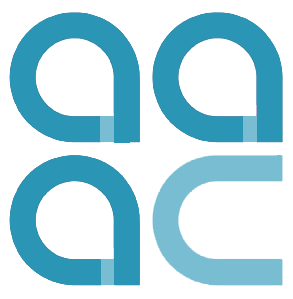Distance Learning Program for Professional Education in Acoustics
Update at July 2025
All the modules in this program are available for registration. Please remember that module 1 is compulsory and once that is completed the other modules can be taken in your preferred order.
Module 1 and 3 have been recently updated and are available via web-based learning platform. Module 4 is currently being updated and the new version will be available in 2026.
Please contact by email if you are seeking further information or a registration form
Email: education@aaac.org.au
Should you wish to discuss the program then please call Marion Burgess on +61 0402240009
BackgroundThis professional education program is aimed at providing appropriate short courses to meet the needs of those embarking on a career in Acoustics. It is primarily aimed at those entering or who have recently entered the acoustical consulting field. It will also be of value for those working in government agencies and allied organisations needing a fundamental understanding of acoustics. The program is based on a similar program that has been offered via Universities and the UK Institute of Acoustics (IOA). It has the support of the Association of Australasian Acoustical Consultants (AAAC). There are no specific prerequisites for this program. It is assumed that the applicant will have completed the equivalent of an undergraduate degree in Engineering, Science or Architecture. If not, they may need to seek additional assistance with some mathematics and physics. Each module of the program is offered as a separate Module in distance learning mode so that it can be commenced at any time. Registrants from outside Australasia are welcome as long as they understand that the standards, guidelines, building constructions etc referred to the in modules are those applicable in Australasia. Each module comprises course notes, assignments and some modules include practical exercises and a test. Registrants work through this material at their own pace and in their own location submitting the work electronically. The practical work in Module 1 and the tests for Module 1 and 2 are undertaken at the registrant’s location under supervision of their employer. It is expected that those registrants working for acoustical consultancies will receive support and supervision by their supervisors. Registrants who are working on the program without support from their employer will be given assistance by phone or email from the course coordinator. This can be supplemented with assistance from a company that is a member of the AAAC. CertificatesA certificate from the UNSW will be issued for successful completion of each module. Registrants who have completed a minimum of 4 of the modules can be provided with a Diploma issued by the AAAC and stating the names of the modules successfully completed. Should any registrants wish to articulate to a formal university program the information on their progress in the modules will be provided to the educational institution for a decision on the amount of advance standing that can be given. Electronic copies of submissions for each module will be available for the educational institution to assist with this decision. | FeesThe registration fee for each module is given on each registration form. As a guide, the Ex GST fees are: Module 1 $990, Module 2 $700, Module 3 $800, Module 4 $650 and Module 5 $TBA. Discounts apply for members of AAS, NZAS and group bookings from one organisation. StructureCompletion of Module 1 is a pre-requisite for undertaking the other modules in the program. It is recommended that Module 2 is then completed before any other modules are commenced. While the aim is to have a program that is flexible to allow registrants to work at their own pace it has become clear that there is a need for some structure to avoid registrants taking an extraordinary time to complete each module. So to encourage completion of each module the following structure has been established: Each module should be completed within 12 months of registration – any extension to the 12 months requires an approval by the registrant’s supervisor. Marking of assignments and experiments will be batched but will normally be returned within 3 weeks of submission. Modules 1 and 2 require successful completion of a test. This is undertaken in the normal workplace under supervision. Alternative arrangements for those not working will be made for the test to be undertaken in a convenient location. The tests will be offered on request with 4 weeks notice so that the arrangements can be put in place. Modules 3, 4, and 5 require submission of a major project for assessment. The marked major project will normally be returned within 4 weeks of this date. |
Module Content
1. General Principles of Acoustics – Must be successfully completed before any other module is attempted. Exemption from this requirement for prior studies in acoustics will be considered on application. This module provides an introduction and overview of the following topics – which will then be developed in subsequent modules.
Assessment for this module is based on 2 assignments, 2 practical exercises and a closed book test. 2. Acoustic Measurements – This builds upon the content of Module 1 and would normally be attempted following completion of Module 1
Assessment for this module is based on an assignment and a closed book test. 3. Room Acoustics and Building Acoustics - This module includes the following sections
Assessment for this module is based on minor and major assignments. | 4. Environmental Acoustics – This module includes the following sections
5. Vibration – The module provides an introduction to vibration measurement, criteria and control.
Assessment for this module is based on an assignment and a report. |

